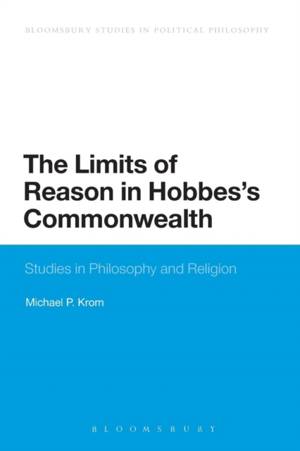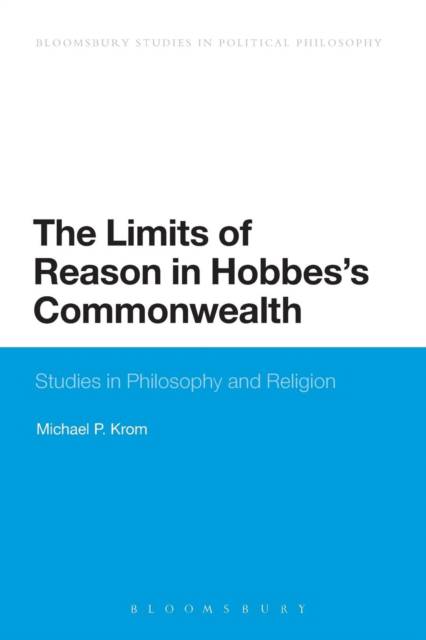
- Afhalen na 1 uur in een winkel met voorraad
- Gratis thuislevering in België vanaf € 30
- Ruim aanbod met 7 miljoen producten
- Afhalen na 1 uur in een winkel met voorraad
- Gratis thuislevering in België vanaf € 30
- Ruim aanbod met 7 miljoen producten
Zoeken
€ 89,95
+ 179 punten
Omschrijving
The Limits of Reason in Hobbes's Commonwealth explores Hobbes's attempt to construct a political philosophy of enduring peace on the foundation of the rational individual. Hobbes's rational individual, motivated by self-preservation, obeys the laws of the commonwealth and thus is conceived as the model citizen. Yet Hobbes intimates that there are limits to what such an actor will do for peace, and that the glory-seeker - "too rarely found to be presumed on" - is capable of a generosity that is necessary for political longevity. Michael P. Krom identifies this as a fundamental contradiction in Hobbes's system: he builds the commonwealth on the rational actor, yet acknowledges the need for the irrational glory-seeker.
Krom argues that Hobbes's attempt to establish a "king of the proud" fails to overcome the limits of reason and the precariousness of politics. This book synthesizes recent work on Hobbes's understanding of glory and political stability, challenging the view that Hobbes succeeds in incorporating glory-seekers into his political theory and explores the implications of this for contemporary political philosophy after Rawls.
Krom argues that Hobbes's attempt to establish a "king of the proud" fails to overcome the limits of reason and the precariousness of politics. This book synthesizes recent work on Hobbes's understanding of glory and political stability, challenging the view that Hobbes succeeds in incorporating glory-seekers into his political theory and explores the implications of this for contemporary political philosophy after Rawls.
Specificaties
Betrokkenen
- Auteur(s):
- Uitgeverij:
Inhoud
- Aantal bladzijden:
- 240
- Taal:
- Engels
- Reeks:
Eigenschappen
- Productcode (EAN):
- 9781472505934
- Verschijningsdatum:
- 23/05/2013
- Uitvoering:
- Paperback
- Formaat:
- Trade paperback (VS)
- Afmetingen:
- 156 mm x 234 mm
- Gewicht:
- 326 g

Alleen bij Standaard Boekhandel
+ 179 punten op je klantenkaart van Standaard Boekhandel
Beoordelingen
We publiceren alleen reviews die voldoen aan de voorwaarden voor reviews. Bekijk onze voorwaarden voor reviews.







